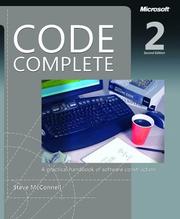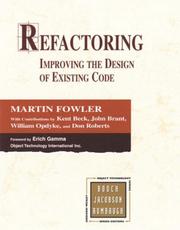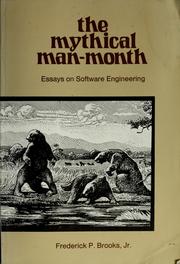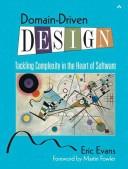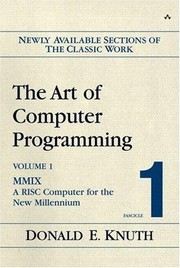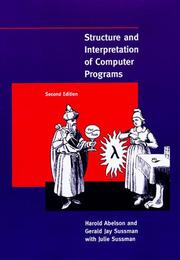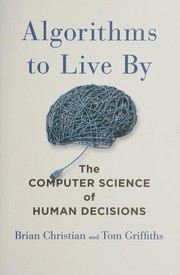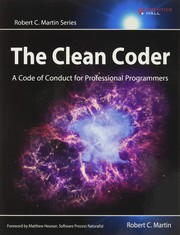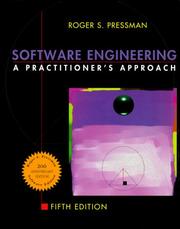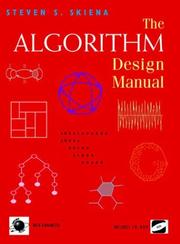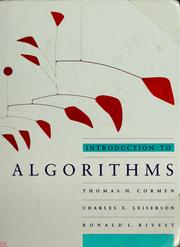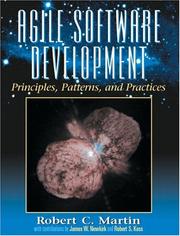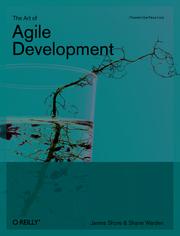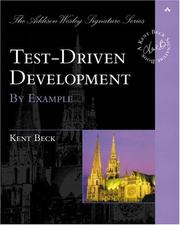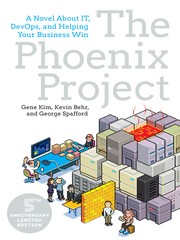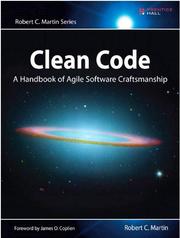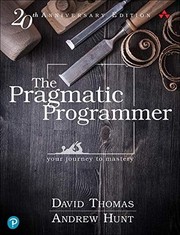Are you looking to dive deeper into the world of software engineering? Whether you’re a seasoned professional or just starting out, there’s always more to learn. That’s why we’ve compiled a list of the 20 best books about software engineering that are sure to expand your knowledge and take your skills to the next level. From in-depth technical guides to insightful reflections on the industry, these books cover a wide range of topics that are essential for any software engineer. So, if you’re ready to enhance your understanding of software engineering, explore these top picks and take your expertise to new heights.
Contents
- 1 20 Best Software Engineering Books
- 2 Clean Architecture
- 3 Designing Data-Intensive Applications
- 4 Code Complete
- 5 Refactoring: Improving the Design of Existing Code
- 6 The Mythical Man-Month
- 7 Domain-Driven Design
- 8 Introduction to the Theory of Computation
- 9 The Art of Computer Programming
- 10 Structure and Interpretation of Computer Programs
- 11 Algorithms to Live By
- 12 The Clean Coder
- 13 Software Engineering: A Practitioner’s Approach
- 14 The Algorithm Design Manual
- 15 Introduction to Algorithms
- 16 Agile Software Development, Principles, Patterns, and Practices
- 17 The Art of Agile Development
- 18 Test-Driven Development: By Example
- 19 The Phoenix Project
- 20 Clean Code: A Handbook of Agile Software Craftsmanship
- 21 The Pragmatic Programmer: Your Journey to Mastery
- 22 Final Thoughts on Best Software Engineering Books
- 23
20 Best Software Engineering Books
Clean Architecture
by Robert C. Martin
Clean Architecture by Robert C. Martin is a groundbreaking book on software engineering that delves deep into the principles and practices of designing robust, maintainable, and scalable software systems. Martin, a renowned figure in the software development community, presents a comprehensive framework for creating architecture that is independent of any external frameworks or libraries, making it adaptable to changing technological landscapes.
The book emphasizes the importance of separating high-level policy from low-level details, enabling developers to build systems that are flexible, testable, and easily modifiable. With a focus on the SOLID principles, Martin advocates for a clean separation of concerns, allowing for the evolution of individual components without impacting the entire system.
Through real-world examples and insightful anecdotes, Clean Architecture provides invaluable insights for both aspiring and experienced software engineers, making it a must-read for anyone passionate about building robust and scalable software systems.
Designing Data-Intensive Applications
by Martin Kleppmann
Designing Data-Intensive Applications by Martin Kleppmann is a comprehensive and insightful book on software engineering that delves into the complexities of building data systems. Kleppmann provides a thorough exploration of the principles, tools, and techniques required to design and maintain data-intensive applications that are scalable, reliable, and efficient.
Through clear and engaging prose, the author covers a wide range of topics including data modeling, storage, retrieval, and processing, as well as the challenges of distributed systems, concurrency control, and fault tolerance. Kleppmann’s in-depth explanations and real-world examples make this book about software engineering a valuable resource for both experienced practitioners and those new to the field.
Whether you are a software engineer, data architect, or a tech enthusiast eager to deepen your understanding of data systems, Designing Data-Intensive Applications offers a wealth of knowledge and practical insights that will empower you to make informed decisions and tackle the complexities of building robust and scalable data-intensive applications.
Code Complete
by Steve McConnell
Code Complete by Steve McConnell is a seminal book on software engineering that has become a classic in the field. With a focus on practical advice and best practices, it covers every aspect of software construction from design to debugging. McConnell’s thorough and comprehensive approach provides valuable insights for both novice and experienced developers.
Readers will find an abundance of actionable guidelines, real-world examples, and case studies that help them improve their coding skills and produce high-quality software. McConnell’s writing style is clear and engaging, making complex concepts easy to understand.
Whether you’re a student, a professional developer, or a software engineering enthusiast, this book about software engineering is a must-read. It’s not just a reference book, but a guide that will help you elevate your coding game and become a more efficient and effective developer. Code Complete is an essential addition to any software engineer’s library.
Refactoring: Improving the Design of Existing Code
by Martin Fowler
Refactoring: Improving the Design of Existing Code by Martin Fowler is a groundbreaking book on software engineering that has become a classic in the field. This book about software engineering provides invaluable insights into the art of improving existing code without changing its external behavior. With a focus on practical techniques and real-world examples, Fowler demonstrates how to identify and address code smells, improve code readability, and enhance the overall design of software systems.
Through this software engineering book, readers will learn how to apply refactoring methods to make their code more maintainable, flexible, and efficient. Whether you’re a seasoned developer or a novice in the field, this book offers a comprehensive guide to understanding the principles and practices of refactoring. With its clear explanations and actionable advice, Refactoring is an essential resource for anyone looking to elevate their coding skills and deliver higher-quality software products.
The Mythical Man-Month
by Frederick P. Brooks Jr.
The Mythical Man-Month, written by Frederick P. Brooks Jr., is a classic book on software engineering that delves into the challenges of managing large-scale software projects. Brooks draws on his experiences at IBM to explore the complexities of team dynamics, project scheduling, and the impact of adding manpower to a late project. He introduces the concept of the “mythical man-month,” which refers to the fallacy of assuming that adding more people to a project will speed up its completion. Through insightful anecdotes and practical wisdom, Brooks offers valuable lessons on the intricacies of software development and the importance of communication, coordination, and collaboration within a team. This timeless software engineering book continues to be a must-read for anyone involved in software development, providing timeless insights into the art and science of managing complex projects.
Domain-Driven Design
by Eric Evans
Domain-Driven Design by Eric Evans is a groundbreaking book on software engineering that revolutionizes the way developers approach complex systems. Evans introduces the concept of domain-driven design, which emphasizes the importance of deeply understanding the problem domain and aligning software design with business goals. By focusing on the core domain and incorporating domain logic into the design, developers can create more effective and maintainable systems.
This software engineering book provides practical guidance on how to model complex domains, manage domain complexity, and create a flexible and adaptable design. Evans also covers ubiquitous language, bounded contexts, and other key concepts that help teams effectively collaborate and communicate about the domain and design. With real-world examples and case studies, Domain-Driven Design offers valuable insights for software engineers, architects, and developers looking to build successful, domain-focused applications.
Introduction to the Theory of Computation
by Michael Sipser
Introduction to the Theory of Computation by Michael Sipser is a fundamental book on software engineering that explores the theoretical underpinnings of computer science. Sipser’s writing style is clear and concise, making complex concepts accessible to readers at all levels of expertise.
The book covers a wide range of topics including automata, formal languages, and computability, providing a comprehensive understanding of the theoretical foundations of computation. Sipser also delves into advanced topics such as complexity theory and NP-completeness, offering valuable insights for those interested in diving deeper into the subject.
Whether you’re a student studying computer science or a professional in the field, this book about software engineering is an essential resource for gaining a solid understanding of the theoretical aspects of computation. Sipser’s Introduction to the Theory of Computation is a must-read for anyone looking to expand their knowledge and proficiency in software engineering.
The Art of Computer Programming
by Donald E. Knuth
The Art of Computer Programming by Donald E. Knuth is a seminal work in the field of computer science. This multi-volume series is often referred to as the “bible” of computer programming, and for good reason. Knuth explores the fundamental principles and techniques of programming and algorithm design, providing in-depth insights into the art and science of writing efficient and elegant code. This book on software engineering covers a wide range of topics, from basic data structures and algorithms to more advanced topics such as compiler optimization and cryptography. Knuth’s writing style is both rigorous and engaging, making complex concepts accessible to readers of all levels of expertise. The Art of Computer Programming is a must-read for anyone serious about mastering the craft of programming and is a timeless classic that continues to influence the field of software engineering to this day.
Structure and Interpretation of Computer Programs
by Harold Abelson and Gerald Jay Sussman
Structure and Interpretation of Computer Programs is a renowned book on software engineering that serves as a foundational text for computer science students and professionals. Written by Harold Abelson and Gerald Jay Sussman, the book presents a unique approach to understanding the principles of programming and software design.
Readers are taken on a journey through the fundamental concepts of computer programming, including abstraction, recursion, and programming language design. Through a series of engaging examples and exercises, the authors encourage readers to think critically and creatively about the process of writing and interpreting computer programs.
By emphasizing the importance of computational processes and the underlying structures of programs, the book equips readers with the knowledge and skills needed to tackle complex software engineering challenges. Whether you’re a beginner or a seasoned professional, Structure and Interpretation of Computer Programs offers valuable insights and practical guidance for mastering the art of software engineering.
Algorithms to Live By
by Brian Christian and Tom Griffiths
Algorithms to Live By by Brian Christian and Tom Griffiths is a captivating blend of practical advice and intellectual exploration. It takes a unique approach by applying the principles of computer algorithms to everyday life. This insightful book on software engineering delves into how algorithms can be used to tackle dilemmas such as scheduling, decision-making, and organization.
Christian and Griffiths draw upon their expertise in computer science to offer a fresh perspective on timeless human predicaments. They demonstrate how concepts like sorting and caching can be applied to optimize daily routines and make more efficient choices. By intertwining real-life examples with complex algorithms, the authors provide a thought-provoking and accessible guide for anyone seeking to enhance their decision-making skills.
Whether you’re a seasoned professional in the field of software engineering or simply curious about the intersection of technology and human behavior, this software engineering book offers a fascinating journey into the world of algorithms and their potential impact on our everyday lives.
The Clean Coder
by Robert C. Martin
The Clean Coder by Robert C. Martin is a must-read book on software engineering for anyone looking to elevate their coding skills to the next level. In this insightful and practical guide, Martin shares his wisdom and experience on what it takes to be a professional software developer. He emphasizes the importance of writing clean, well-structured code, and the significance of professionalism and accountability in the field of software development.
Through real-world examples and personal anecdotes, Martin provides valuable advice on how to handle pressure, manage time effectively, and communicate with clients and team members. He also delves into the crucial topics of testing, estimation, and continuous learning, offering invaluable insights that will resonate with both aspiring and experienced software engineers.
Overall, The Clean Coder is a compelling and thought-provoking book about software engineering that challenges readers to rethink their approach to coding and adopt the mindset of a true professional in the field.
Software Engineering: A Practitioner’s Approach
by Roger S. Pressman
This renowned book on software engineering, Software Engineering: A Practitioner’s Approach by Roger S. Pressman, offers a comprehensive and practical guide to the principles and practices of software development. Pressman’s expertise in the field shines through as he provides a detailed overview of the entire software engineering process, from requirements analysis and system design to implementation, testing, and maintenance.
Readers will appreciate the book’s emphasis on real-world applications and its focus on industry best practices, making it an invaluable resource for both students and professionals in the field. The book’s accessible writing style and numerous examples help demystify complex concepts and make it an engaging read for anyone interested in the world of software development.
Whether you’re a seasoned software engineer or just starting out in the field, this software engineering book provides a wealth of knowledge and practical insights that will help you excel in your career and deliver high-quality software products.
The Algorithm Design Manual
by Steven S. Skiena
The Algorithm Design Manual by Steven S. Skiena is a must-read for anyone interested in algorithms and problem-solving in the realm of computer science. This comprehensive book on software engineering covers a wide range of algorithm design techniques and strategies, providing clear explanations and real-world examples to help readers understand and apply the concepts.
Skiena’s writing style is engaging and accessible, making complex topics easy to grasp for both beginners and experienced programmers. The book also includes a treasure trove of exercises and problems to test and reinforce your understanding of the material.
Whether you’re preparing for coding interviews, tackling algorithmic challenges in your work, or simply want to deepen your understanding of software engineering principles, The Algorithm Design Manual is an invaluable resource that will help you sharpen your problem-solving skills and become a more effective programmer.
Introduction to Algorithms
by Thomas H. Cormen, Charles E. Leiserson, Ronald L. Rivest, and Clifford Stein
Introduction to Algorithms is a renowned and comprehensive book on software engineering, written by Thomas H. Cormen, Charles E. Leiserson, Ronald L. Rivest, and Clifford Stein. This book presents a thorough introduction to the fundamental concepts of algorithms and data structures, making it an essential resource for computer science students, professionals, and enthusiasts.
The authors delve into the analysis and design of algorithms, covering a wide range of topics such as sorting and searching, graph algorithms, and dynamic programming. The book also explores the application of algorithms in various fields, including bioinformatics and cryptography.
What sets this software engineering book apart is its clear and concise explanations, accompanied by illustrative examples and exercises that aid in understanding and implementing the concepts discussed. Whether you are a beginner or an experienced programmer, Introduction to Algorithms equips you with the knowledge and skills necessary to tackle complex algorithmic problems and develop efficient solutions.
Agile Software Development, Principles, Patterns, and Practices
by Robert C. Martin
Agile Software Development, Principles, Patterns, and Practices by Robert C. Martin is a renowned book on software engineering that provides a comprehensive overview of agile development principles and practices. The book delves into the core concepts of agile methodology, emphasizing the importance of flexibility, collaboration, and iterative development in software projects.
Readers will gain insights into various agile principles and patterns that can be applied to enhance the efficiency and quality of software development processes. The book also covers essential practices such as test-driven development, refactoring, and continuous integration, offering practical guidance for implementing these techniques in real-world projects.
With a focus on delivering valuable software to customers through adaptive and collaborative approaches, this software engineering book serves as a valuable resource for developers, managers, and anyone involved in software development. Whether you’re new to agile practices or seeking to deepen your understanding, Agile Software Development, Principles, Patterns, and Practices is an indispensable guide for mastering agile principles and fostering a culture of continuous improvement in software engineering.
The Art of Agile Development
by James Shore and Shane Warden
The Art of Agile Development, written by James Shore and Shane Warden, is a comprehensive guide to the principles and practices of agile software development. This book on software engineering is a valuable resource for anyone looking to understand and implement agile methodologies in their development process.
Shore and Warden provide a clear and practical approach to agile development, covering topics such as iterative planning, continuous integration, and test-driven development. The book also emphasizes the importance of collaboration and communication within agile teams, making it an essential read for anyone involved in software engineering.
With its insightful anecdotes and real-world examples, The Art of Agile Development offers a refreshing take on agile practices, making it a must-read for anyone interested in improving their software development process. Whether you’re a seasoned developer or new to the field, this book about software engineering will equip you with the knowledge and tools needed to thrive in the fast-paced world of software development.
Test-Driven Development: By Example
by Kent Beck
Test-Driven Development: By Example by Kent Beck is a groundbreaking book on software engineering that revolutionizes the way developers approach writing code. In this software engineering book, Beck introduces the concept of Test-Driven Development (TDD), a methodology that emphasizes writing tests before writing the actual code. By doing so, developers can ensure that their code is reliable, maintainable, and bug-free from the start.
Beck’s book about software engineering provides a practical guide to TDD, walking readers through the process of writing tests, implementing code, and continuously refactoring to improve design and functionality. With real-world examples and insightful explanations, Test-Driven Development: By Example equips software engineers with the knowledge and tools needed to apply TDD in their own projects.
Whether you’re a seasoned developer or just starting out in the field of software engineering, this software engineering book offers valuable insights and techniques for creating high-quality, robust code through the power of Test-Driven Development.
The Phoenix Project
by Gene Kim, Kevin Behr, and George Spafford
The Phoenix Project is a captivating book about software engineering that takes readers on a thrilling journey through the world of IT and business operations. Written by Gene Kim, Kevin Behr, and George Spafford, this book presents a compelling narrative that revolves around the challenges faced by a fictional company, Parts Unlimited.
Readers are introduced to Bill, an IT manager who is thrust into a high-stakes situation where the company’s future hangs in the balance. As he navigates through the chaos and mounting pressure, Bill learns valuable lessons about the principles of DevOps and how they can be applied to transform the organization’s IT and business processes.
The Phoenix Project is a must-read for anyone interested in understanding the intricacies of software engineering and the critical role it plays in modern businesses. Through its engaging storytelling and insightful lessons, this book offers a fresh perspective on how to overcome common challenges in the world of IT and ultimately achieve success.
Clean Code: A Handbook of Agile Software Craftsmanship
by Robert C. Martin
Clean Code: A Handbook of Agile Software Craftsmanship, written by Robert C. Martin, is a renowned book on software engineering that has become a must-read for developers and programmers. In this book about software engineering, Martin shares his expertise and insights on how to write clean, maintainable, and efficient code. He emphasizes the importance of craftsmanship and provides practical advice on how to improve code quality, readability, and maintainability.
The book delves into various topics such as naming, functions, comments, formatting, and error handling, offering actionable tips and best practices for writing high-quality code. Through real-world examples and case studies, Martin illustrates the principles of clean code and demonstrates how they can be applied in different scenarios.
Whether you are a seasoned software engineer or a novice developer, Clean Code is a valuable resource that can help you elevate your coding skills and develop a deeper understanding of software craftsmanship. It is a timeless classic in the realm of software engineering books that continues to inspire and empower programmers to strive for excellence in their coding practices.
The Pragmatic Programmer: Your Journey to Mastery
by Andrew Hunt, David Thomas
The Pragmatic Programmer: Your Journey to Mastery is a renowned book on software engineering that offers practical advice and insightful techniques to help developers become more efficient and effective in their work. Written by Andrew Hunt and David Thomas, this influential software engineering book provides a wealth of knowledge and wisdom accumulated through years of experience in the field.
The book is structured as a series of tips and strategies that cover a wide range of topics, including coding, debugging, testing, and teamwork. It emphasizes the importance of continuous learning, critical thinking, and the relentless pursuit of excellence in software development. With its engaging writing style and real-world examples, The Pragmatic Programmer inspires readers to adopt a pragmatic approach to their work and strive for mastery in their craft.
Whether you’re a seasoned professional or a newcomer to the field, this book about software engineering is a valuable resource that will help you elevate your skills and achieve greater success in your software engineering endeavors.
Final Thoughts on Best Software Engineering Books
There you have it, the 20 best books about Software Engineering. Whether you’re a seasoned developer or just starting out, these books cover a wide range of topics and provide valuable insights into the world of software engineering. From coding practices to project management, these books are essential for anyone looking to excel in the field. Happy reading!
Which book about Software Engineering is best?
The best book on Software Engineering can vary with personal preference, but three widely recommended titles are:
- Clean Architecture by Robert C. Martin,
- Designing Data-Intensive Applications by Martin Kleppmann,
- Code Complete by Steve McConnell.
Each offers valuable insights and could be a great starting point.
What are the best books to learn about Software Engineering?
For those looking to learn about Software Engineering, there is a wealth of literature that can provide a comprehensive understanding of the subject. Some of the most highly recommended books include:
- Clean Architecture by Robert C. Martin,
- Designing Data-Intensive Applications by Martin Kleppmann,
- Code Complete by Steve McConnell,
- Refactoring: Improving the Design of Existing Code by Martin Fowler,
- The Mythical Man-Month by Frederick P. Brooks Jr.,
- Domain-Driven Design by Eric Evans,
- Introduction to the Theory of Computation by Michael Sipser,
- The Art of Computer Programming by Donald E. Knuth,
- Structure and Interpretation of Computer Programs by Harold Abelson and Gerald Jay Sussman,
- Algorithms to Live By by Brian Christian and Tom Griffiths
These books offer a range of perspectives on Software Engineering, covering various aspects and approaches to the subject.
What are the best books about Software Engineering?
The best books about Software Engineering are:
- Clean Architecture by Robert C. Martin,
- Designing Data-Intensive Applications by Martin Kleppmann,
- The Clean Coder by Robert C. Martin,
- Software Engineering: A Practitioner’s Approach by Roger S. Pressman,
- The Art of Computer Programming by Donald E. Knuth,
- Domain-Driven Design by Eric Evans.
Each offers unique insights into the subject. While these books about Software Engineering are highly regarded, it’s important to note that any list of ‘best’ books is subjective and reflects a range of opinions.
What are the best Software Engineering books of all time?
Choosing the best Software Engineering books of all time can vary depending on who you ask, but five titles that are often celebrated include
- Clean Architecture by Robert C. Martin,
- Designing Data-Intensive Applications by Martin Kleppmann,
- The Mythical Man-Month by Frederick P. Brooks Jr.,
- The Art of Computer Programming by Donald E. Knuth,
- and The Clean Coder by Robert C. Martin.
Each of these books has made a significant impact in the field of Software Engineering and continues to be influential today.



